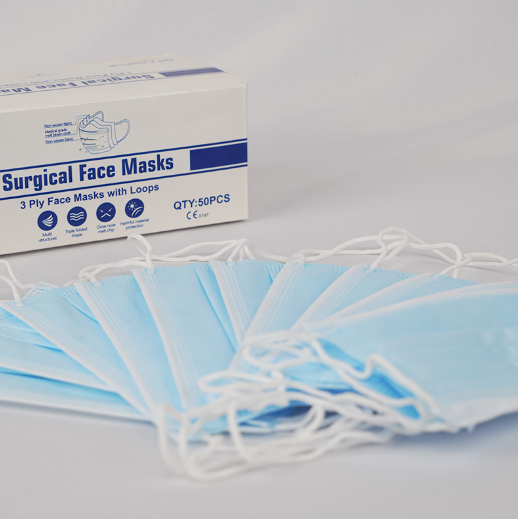A Type IIR surgical mask is a specific type of medical face mask that is designed to provide a barrier against infectious agents and protect both the wearer and others from the spread of potentially harmful droplets. In this news, we will explore the characteristics, standards, and uses of Type IIR surgical masks in detail.
Characteristics:
Type IIR surgical masks possess several distinct characteristics that make them suitable for medical settings and offer enhanced protection compared to other types of masks. Some key features of Type IIR surgical masks include:
- Fluid Resistance: Type IIR masks are resistant to penetration by bodily fluids and provide a barrier against blood and other potentially infectious liquids. They are designed to prevent droplets from reaching the wearer’s face, reducing the risk of infection.
- Bacterial Filtration Efficiency (BFE): These masks have a high BFE, typically exceeding 98%. The BFE indicates the mask’s ability to filter out bacteria present in the air, protecting the wearer from bacterial infections.
- Particle Filtration Efficiency (PFE): Type IIR masks also have a high PFE, often above 98%. The PFE measures the mask’s filtration efficiency for small particles, including viruses and other airborne particles.
- Three-Layer Construction: They are generally composed of three layers: an outer layer that repels fluids, a middle layer that acts as a filtration barrier, and an inner layer that absorbs moisture and provides comfort.
- Ear Loops or Tie-Ons: Type IIR masks are available with either ear loops or tie-on straps, providing flexibility and ensuring a secure fit for different individuals.
Standards and Regulations:
Type IIR surgical masks adhere to specific standards and regulations to ensure their effectiveness and safety. In Europe, these masks comply with the European Standard EN 14683:2019, which provides requirements and test methods for medical face masks. The “R” in Type IIR indicates the mask’s resistance to liquid splashes and sprays.
The EN 14683 standard classifies surgical masks into several types based on their performance:
- Type I: These masks are primarily intended for use by healthcare professionals to protect patients from the wearer’s respiratory emissions. They have a lower level of barrier properties compared to Type IIR masks.
- Type II: Type II masks offer a higher level of barrier properties compared to Type I masks. They provide increased protection for the wearer against infectious agents.
- Type IIR: Type IIR disposable masks have the highest level of barrier properties among the three types. They are resistant to liquid splashes and sprays, making them suitable for use in situations where there is a risk of exposure to bodily fluids.
Uses and Applications:
Type IIR surgical masks are commonly used in various healthcare settings, including hospitals, clinics, dental offices, and laboratories. They are worn by healthcare professionals, such as doctors, nurses, and surgeons, to prevent the transmission of infectious agents during procedures and examinations.
These masks are effective in protecting both the wearer and others from the spread of respiratory droplets that may contain harmful pathogens, including bacteria and viruses. They are particularly valuable in situations where there is a risk of exposure to blood, bodily fluids, or other potentially infectious materials.
Type IIR masks are also recommended for individuals with respiratory symptoms or those diagnosed with contagious diseases, as they can help minimize the transmission of respiratory droplets to others in the vicinity.
It is important to note that while Type IIR surgical masks provide a high level of protection, they should be used in conjunction with other infection control measures, such as hand hygiene and appropriate distancing, to effectively reduce the risk of transmission.
Conclusion
A Type IIR surgical mask is a specialized medical face mask designed to offer a high level of barrier protection against infectious agents. These disposable masks are fluid-resistant, have high bacterial and particle filtration efficiency, and comply with specific standards and regulations. They are widely used in healthcare settings to prevent the spread of infections, particularly in situations involving exposure to bodily fluids. By providing a physical barrier against respiratory droplets, Type IIR masks play a crucial role in minimizing the transmission of pathogens and protecting both the wearer and others in medical environments.



